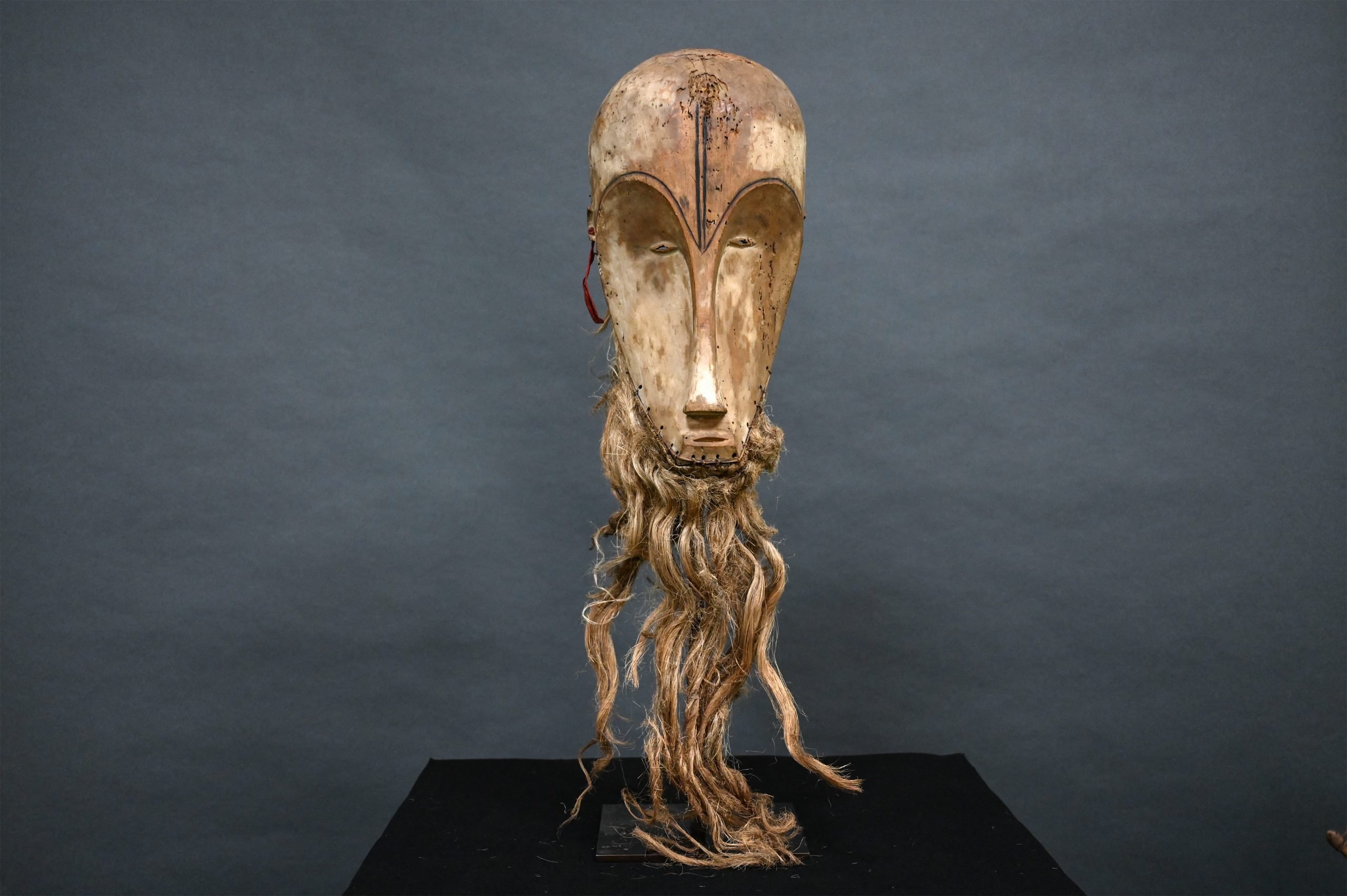
The transitional government of Gabon, which underwent a military coup d’état in August, has begun a legal battle for the restitution of an antique mask that last sold for €4.2 million ($4.4 million) and is now at the center of a lawsuit in France.
French lawyer Olivia Betoe announced last month that she was contacted by Gabon authorities to be one of two lawyers leading legal efforts to recover the wooden Ngil mask, used in rituals in an African secret society and believed to have been looted from Gabon around 1917 by René-Victor Fournier, a colonial administrator.
The mask came to attention in recent months after the French couple that once owned it filed a lawsuit against the dealer they sold it to for a mere €150, or about $157, in September 2021. The saga was previously reported by Artnet.
Betoe said on X, formerly Twitter, that the two lawyers had appeared in court October 31 requesting “voluntary intervention,” which would allow them to pause the court’s decision pending Gabon’s petition to have the mask returned.
Gabon had filed a complaint with the Montpellier judicial court seeking criminal proceedings for the alleged handling of stolen goods in September, in pursuit of the repatriation, Betoe said on Facebook. Additionally, Betoe said officials are looking at “how to make effective the restitution of all Gabonese art objects held abroad.”
The activist group Collectif Gabon Occitanie has led the efforts to have the mask returned since it was auctioned in March 2022 for $4.4 million.
“When I think that all this started with a small protest by my association the Collectif Gabon Occitanie and today the whole world is talking about it!” Mbone Nze Gondjout of the CBO said on Facebook. “We are bringing our mask home!”
Solange Bizeau, also of the CBO, had protested at the March auction and was in court Tuesday. She told The Guardian that neither party in the case—the grandchildren of the colonial governor who stole the mask and the dealer who sold it—has a legitimate claim to the piece.
“This mask has a soul, it was used to establish justice in our villages. The discussion in court has been about morality, but what about the morality of the spoliation of works of art and our dignity? Where is the morality in that?” she said.
Neither Betoe nor Bizeau immediately responded to Artnet News’s requests for comment.
More Trending Stories:
This 15th-Century Painting Might Actually Depict a Prehistoric Tool, New Research Suggests